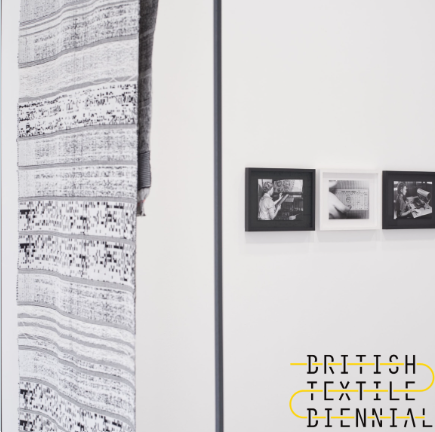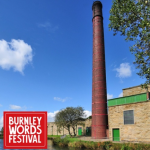
The British Textile Biennial returns to Queen Street Mill in 2025. British Textile Biennial is a free festival of contemporary art, commissioning artists and designers from all over the world to make work inspired by the context and legacy of the textile industry in East Lancashire and its global impact, often in the places that were created by it.
This year’s exhibitions explore invention and innovation in textile production; through indigenous knowledge to space-age technology, from the earliest form of shelter, the tent, to space suits, and from plant-based dyes to the first polymers. At Queen Street Mill you’ll be able to see Crystal Bennes: When Computers were Women – four woven pieces developed from a residency at CERN (the European Organisation for Nuclear Research), the home of the Large Hadron Collider. Bennes was struck by the resemblance of old computer programming punch cards produced by the former female ‘computers’ in the data centre there to the punch cards used in Jacquard looms and the invisibility of the female workforce. The programme produced by these cards aimed to recreate the ‘Big Bang’—the origin of the universe. Bennes collaborated with an all-women weaving team at Dash & Miller in Bristol to create the four pieces that will be exhibited in the authentic industrial setting of Queen Street Mill. Here, visitors can explore Bennes’ work, and also see a 19th-century Jacquard loom and its punchcards, witness demonstrations of historic textile machinery, and experience the original Lancashire Looms in action—still in-situ since the mill’s opening in 1895, offering a rare and immersive glimpse into Britain’s textile heritage.
After experiencing the artwork, visitors are warmly encouraged to explore the rest of the mill and discover its remarkable heritage first-hand.





